#nativism
Text

America was not discovered. It was stolen.
That is the origin story. Theft. Betrayal. Genocide. Lying. Rape. Dishonesty. Inhumanity.
463 notes
·
View notes
Text
"Rule Britannia is out of bounds" - How England invented Great Britain
("Rule Britannia is out of bounds"- Life on Mars, David Bowie, 1971)
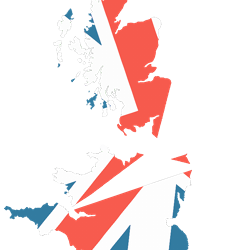
As promised, here is a more in-depth exploration of Wales' relationship to indigeneity or colonised status. And how England created the (political) concept of Great Britain when it formally annexed Wales in 1542. This is a long post but I will try and be brief where possible to do so. I graduated with a degree in Celtic Studies last year from Aberystwyth University so it's time to put that to use.
In my last post, I went over the groundwork for this conversation - so if you haven't read that one yet I strongly suggest you read that one first then come back to this one. In that first post, I establish the stickiness in claiming or applying the status of colonised onto the modern nation and people of Wales. I also explore how claims of indigeneity (intended to legitimise Welsh nativism through dubious claims of descent from the Iron Age Britons) are weaponised in modern political contexts.
With all that said - how does one categorise the suffering of Wales/its culture and language without straying into the language of the colonised?
Early Medieval English Imperial desire for Wales:
Very often, you will hear people make the claim that Wales was 'England's first colony' and that the other nations bordering England were guinea pigs for Britain's later colonial empire. My previous writing on this topic has established the difficulty in applying colonised as a term to Wales and its context. Which leads to the question of what do we describe it as instead?
For this, we need to make a distinction between colonialism and imperialism.
The two concepts are very similar (and do overlap slightly) but they have crucial differences which allow us to be more precise and succinct with our wording which aids both communication of the subject and quells misunderstanding through language which doesn't fit the situation.
Put simply, Imperialism is when one country, people or nation desires to extend power over another (usually a close-by or neighbouring territory) - especially (but not solely) through the means of expansionism.
Colonialism is also when a country, people or nation wants to extend power over another - but primarily through invasion and typically (but not always) against territories that are further afield and not immediate neighbours).
A lot of the way in which we view early British history in Wales is tinged with a kind of exceptionalism for what happened between England and Wales. Very often, what was done is framed as uniquely terrible for the time and held up as a poster child for the unique evil of England's expansionist desires. Yet all over Europe at the same time this was happening - other European nations and peoples were engaging in the same subjugator-subjugatee relationship. The exceptionalism present in framing Wales as uniquely suffering in this period is, unfortunately, borne out of the same British imperial culture which was thrust upon it and has become irrevocably entwined with culturally. It is a kind of British arrogance (which ironically crops up in anti-British arguments in Welsh independence activism) which presupposes nobody could have suffered the same or worse than they have, which demands the active ignorance of other, contemporary examples of that which they claim to oppose.
Wales was the first victim of English (later British) Imperialism - not its first colonial victim.
The build-up to and annexation of Wales by England:
Wales was annexed twice - once before the age of states and once shortly before that age dawned. The concept of states (as in, sovereign countries) didn't really exist until after the Treaties of Westphalia (1648). In which the concept of non-interference in the religious affairs of other countries (and other domestic affairs) was established and international relations was born. This is relevant to Wales' situation - as what England did to Wales happened long before the age of states began.
There was the Conquest of Wales by Edward I between 1277 and 1283. (Before that, the Norman Conquest of Wales by 1081). (However, the latter being conducted by the Normans is not necessarily equatable to the actions of England the country, which itself had only just been invaded by the Normans). And then the Laws in Wales Acts which formally incorporated Wales into the realm of the Kingdom of England in 1542.
The Conquest of Wales by Edward I overran the territories of the last Prince of Wales (from the Welsh monarchic tradition), Llywelyn the Last and divided the territories into Welsh Principalities and Marcher Lordships. This setup remained until 1542, when Henry VIII passed the Laws in Wales Acts and formally annexed Wales and made it (in all the legal senses) a part of England.
By the time international relations was in its infancy (i.e. shortly after the Peace of Westphalia) Wales had been absorbed into England for just over 100 years. The relevancy of this is that Westphalia had been about religious liberty - Henry VIII's incorporation of Wales into the Kingdom of England was partly informed by religion. Henry VIII had just broken away from Rome and established the Protestant Church of England, whereas Wales was still largely Catholic. The Laws in Wales Acts also replaced the language of the courts in Wales with English, cutting off monolingual Welsh speakers from legal representation. The language of worship became English instead of Latin. Wales was culturally assimilated into England over a long period of time. And that meant ensuring Wales followed the 'correct' religion and spoke the 'correct' language. After the Peace of Westphalia, these actions by Henry VIII to bend Wales to his new religion and to assimilate Wales into England would have been in poor taste or decried in light of the new Westphalian system that was developing in Europe. Alas, these events took place before then and temporally speaking, Wales was locked out of this recourse.
By contrast, Scotland was unified with England into the Kingdom of Great Britain in 1707 (after the Peace of Westphalia). England committed numerous acts of cultural erosion and destruction against Wales and Scotland at this time - but its Union with Scotland differs to that with Wales. Wales was incorporated into England, whereas Scotland was 'invited' to join a union between England (which then included Wales) and itself. Simplifying it greatly - like a marriage proposal in which the two spouses are *supposed* to be equals. After the Act of Union with Scotland, the whole island of Great Britain was 'unified' and thus the Kingdom of Great Britain was formed from two states - England (inc. Wales) and Scotland into one state.
Welsh Nationalism and Nationhood as separate from Statehood:
Wales and Scotland were the victims of English imperialism in many similar, but also many different ways.
Wales, having never been a 'state' was unable to acquire this status since it had long been incorporated into England by the time the concept of states had developed. Wales was unlucky in this way, because other nations on this island such as Scotland had managed to establish themselves long enough to survive into the age of states and thus became one. Because of this, Welsh nationalism cannot look to an era in which it was a free state because that did not happen. Instead, Welsh nationalism very often looks back with rose-tinted spectacles to Wales prior to Edward I's conquest and/or prior to Henry VIII's Laws in Wales Acts.
But nationhood and statehood are not the same thing - and it is the conflation of these two concepts (like the conflation of colonialism and imperialism) which has led to much of the confusion on these topics. Nationhood is acquired by a group of people who share several of these things: a common language, history, culture and (usually) territory. Not all of these things are required, but most nations have all or almost all of these qualities. Wales has a language (Welsh), a common history, culture and territory (Wales). Statehood is acquired by an association of people who have most or all of these things: formal institutions of government, laws, permanent territorial boundaries and sovereignty. Wales before 1283 very loosely had government and laws (monarchy and Laws of Hywel Dda) but had no permanent territory due to the conquest and lost some sovereignty in 1283 and total sovereignty in 1542.
Even if Wales had met all the criteria for a state in 1283, it would not have been eligible to become one - no nation in the world was able to do that yet because the concept (or proto-concept) for it would only be invented in 1648. Even England did not qualify for state status yet. Put simply, Wales got very unlucky with history and geography in such a way which prevented it from having a historical statehood post-1648 like neighbouring England and Scotland.
Naturally, when Welsh nationalism attempts to recall a past in which it was a 'state' - it is always an imagined and romanticised history. A fantasied history which generates ideas of the persecuted 'indigenous' Cymro where it shouldn't really be (in all seriousness, the injustices inflicted upon Wales by England are enough - extra additional injustices reliant upon a claim to to 'nativeness' do not need to be invented in order to be taken seriously). In the modern world, claims of nativeness in a European context are fraught, misguided, in poor taste and often copy the homework of the indigenous peoples those same European powers marginalised or colonised. In the modern world, a white Welshman claiming indigeneity is doing so in a postcolonial world and there really is no escaping that. Succinctly - the Welsh nationalist who relies upon a created sense of nativeness can only do so by drawing upon the work of marginalised native peoples living in parts of the world formerly colonised by Great Britain. To claim native status as a Welshman is to misunderstand and misappropriate history while wielding the language of the genuinely colonised while contributing nothing to it. It is purely extractive and a slap in the face of non-European native peoples everywhere. The pining for this return* to a prior point in Wales' history where it was a fully functional, sovereign nation populated only by 'native' or 'indigenous' Cymry is an alarming and ahistorical fantasy that all too easily slides into ethnonationalism and nativism -ancient or modern.
(*the choice of the word 'return' here is no accident - the desire to 'return' is inextricably linked to the alt-right dogwhistle 'retvrn' and it it is frighteningly common to see elements of that subculture crop up in Welsh nationalist calls to return to a point in Wales' history where it was 'sovreign'.)
Welsh nationalism which isn't vigilant to this kind of thinking very often will find itself arguing blatant untruths. For example, on the milder side of fake history, I've come across Welsh nationalist groups claiming symbolism from Owain ap Gruffydd's coat of arms - despite the fact he lived before the age of heraldry and he never used these arms because they were attributed to him later.
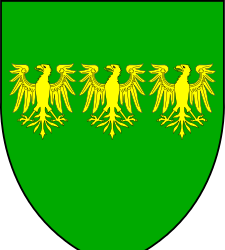
What next for Wales after 1542?:
Since Wales was fully and formally incorporated into the Kingdom of England by 1542, English colonisation of the Americas prior to 1707 naturally included Welsh colonists as well as English colonists. After 1707 Scots joined in with the now British colonisation of the Americas (both as/for/on the side of the Brits and as Scots fleeing Scotland after the Act of Union decimated Scottish Gaelic traditional culture). The Welsh, on the other hand, were more intimately involved with the colonisation of the Americas before that.
Though England spearheaded its colonisation of the Americas, Wales was not an unwilling participant dragged along by its association with and incorporation into England - Welsh colonisation, like Scottish colonisation, was often motivated by religious or cultural persecution - of which colonisation of another land was a possible solution to cultural loss in their home countries. Pennsylvania was settled by many Welsh Quakers and the idea of a Welsh Tract was floated to the Welsh settlers in 1684. The idea was to create a county which would operate in the Welsh language and serve as a vehicle for the preservation of the Welsh language. This attempt was not as successful as Wales' colony in Patagonia, Argentina in which native populations there were displaced at the behest of the Argentinian government - who needed the land settled and cleared. Welsh colonists took up this mantle and created Y Wladfa colony there in 1865.
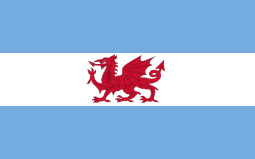
Returning to the 17th Century - Welsh people were active colonists in the Americas during this time - motivated by saving the Welsh language and freedom of religion (especially the developing Nonconformist denominations of Protestant Christianity developing at this time). It was not so much that England was forcing Wales to participate in its colonialism, but that Wales has its own wants and ends for colonialism and was motivated entirely on its own grounds.
Back at home, Wales was still hard-done-by due to England - but two things can be true at once. Wales was a victim of English imperialism, but was also a perpetrator itself of colonial violence against Native Americans. England was no such victim of imperialism of any kind and the power dynamic for England had always been one rooted in absolute expansionism.
Summary and Conclusion:
With all of that said - if you were to ask point blank if I feel it is appropriate or okay for Wales to claim it was colonised by England and that Welsh people are in some way, more indigenous to the island than any other people living here - my answer would be no, I don't think it's okay.
I can't stop people from thinking otherwise, but I can reason that perhaps we shouldn't appropriate the struggles of people marginalised by the very nation we are talking about in order to craft a victimhood which is entirely unnecessary. Wales was a victim of English imperialism - but Wales was also an active colonising European nation. In the modern world, people are thankfully more willing to listen to the wants and needs of victims of colonialism - particularly victims of British colonialism in the Americas, Oceania and Asia. But I would warn against Welsh nationalism which seeks to capitalise on that increase in indigenous visibility in order to add legitimacy to itself (necessitating the crafting of an 'indigenous' narrative which did not exist there before). We live in the modern world where indigenous peoples are being taken more seriously than in centuries past - but that does not mean the only peoples hard-done by being taken seriously are colonised indigenous populations.
I believe it comes from a deep seated insecurity within Wales in which it is not uncommon to feel like Wales is being left behind because of all of this advancement. And this insecurity manifests as rejection of anything not obviously Welsh or demonstrably 'home-grown'. It's the national equivalent of a survival mechanism - but this is detrimental not only to the cause of Welsh nationalism, but to Wales itself. I've had people say to me (and I have read in historical sources from the last 100 years in Welsh) that the LGBTQ+ movement is actually an English invention created to erode Welsh traditional culture. Or variations on that rhetoric in which it is immigrants or other minorities which are made into this boogeyman come to destroy Wales and all Welsh ways of life. And it is so demonstrably not true but also bitter to see from the hearts and minds of my fellow Welsh speakers/Welsh people. Who have been hurt so much by the historical erosion of their culture that they confuse non-threats for threats and can only resolve to obtain some more legitimacy by appropriating the language of nativeness and colonisation in this ever changing world which, right now, is listening to native peoples for once.
It's difficult to put into words, even with all of the background knowledge above - but Wales is valuable and legitimate all on its own and doesn't need to rely upon things which isn't serving it - like ethnonationalism and nativism.
I want to live in a Wales which is uncompromising not only in its own fight for recognition and respect - but for other nations and peoples' fights for the same as well. I want to live in an independent Wales which is an ally to all those who share Wales' struggle and a Wales which rights the wrongs of its past without hesitation or compromise.
Would you rather a Wales for the few or a Wales for all who call it home?
#cymraeg#welsh#wales#cymru#ethnonationalism#cymblr#nativism#indigenous#native#indigeneity#nativeness#tags for relevance#celtic nations#celticist#I know there's so many more things I could say or could add but this post is so long already#granted it's evidence this conversation sorely needs to happen#so if you have any additions or thoughts please reblog or reply in the tags#and reblog this post so that more people have a chance to read it#diolch pawb#long post
133 notes
·
View notes
Photo
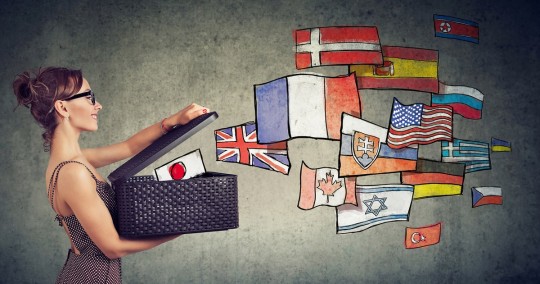
Every culture takes a dim view of anyone who does not unconditionally prefer the native to the foreign, the inside to the outside… This preference is inseparably bound up with the identity, the autonomy, the very existence of these cultures.
- René Girard
#girard#rene girard#quote#sociologist#philosophy#language#culture#nativism#sovereignty#nation#society#europe
26 notes
·
View notes
Text

Temple Kaneh Bosem is a Non-Profit Religious Organization and Multi-Faith Church based in Hudspeth County Texas and El Paso Texas. We are the only registered church in Texas that uses Cannabis as a religious sacrament.
Visit Our Church Website:
https://templekanehbosm.wixsite.com/0010001
Every sale of goods is considered a donation to the church. The donations the Temple Kaneh Bosem receives will help a lot to achieve our mission. We'll be able to:
- Provide low income and needy families of our community with food, clothing, and hygiene supplies.
- Provide community and prison outreach services
- Provide a safe place for all faiths to worship and hold services
- Provide a safe shelter for the homeless, victims of domestic violence and migrants
- Support the Temple Kaneh Bosem's Farm (LCF Ranch) so that we can continue to provide our community with fresh produce, eggs and more without full reliance on food donations from food banks
Non-Profit Proof: State of Texas Certificate of Filing Number: Temple Kaneh Bosem Inc - 805188759 (Filed with the Texas Office of Secretary of State)
Donation and Shop Links:
https://gofund.me/98fc5b76
https://www.givesendgo.com/TempleKanehBosem
https://www.etsy.com/shop/TempleKB
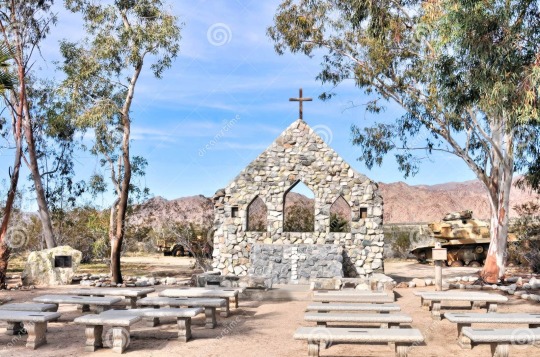
#Church#Online Church#Cannabis Church#Multi-Faith Church#Non Denominational#Christian#Muslim#Paganism#Wicca#Islam#Native American Spirituality#Nativism#Pagan#Wiccan#Christianity#spiritualism#Multi-Faith
2 notes
·
View notes
Text
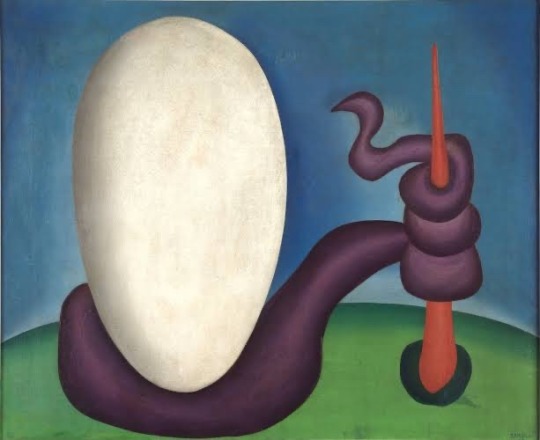
“Urutu Snake”, 1928, Tarsila do Amaral.
#art#art history#painting#snake#brazilian painters#Brazil#brasil#brazilian art#tarsila do amaral#amaral#1920s art#Brazilian modernism#modernism#modern art#20th century art#animals in art#nativism#south american art
52 notes
·
View notes
Text
Una donna forte è l'unica che sente profondamente ed ama ferocemente.
Le sue lacrime scorrono abbondantemente tanto quanto i suoi sorrisi.
Una donna forte è dolce e potente allo stesso tempo. Lei può essere sia razionale, sia spirituale.
Una donna forte nella sua vera essenza è un dono per questo mondo.
~Proverbio dei Nativi
#nativism#american nature#american natives#women#native#indigenous#proverbio#writing#aforismi#education#poetscommunity#reading#emozioni#romantic poets#loveyourself#language#followme#seguimi#sentimenti#emozionarsi#indigenisation#new blog#personal blog#blog personal#my blog#blog blogger#blogging#scrivimi#citazione tumblr#passione
4 notes
·
View notes
Text


These are so fun to make
#birds#birdwatching#memes#bird memes#fashion#birding#coopers hawk#white winged scoter#native birds#bird nerd#steal his look
93K notes
·
View notes
Text
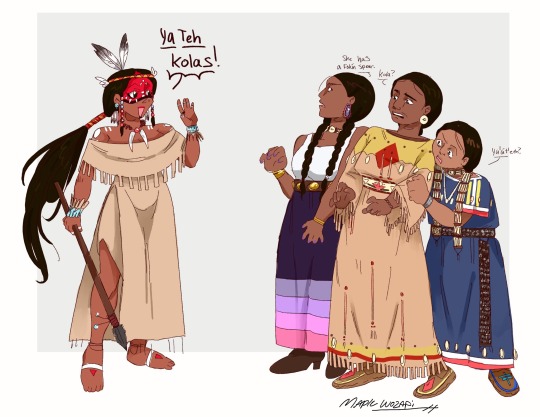
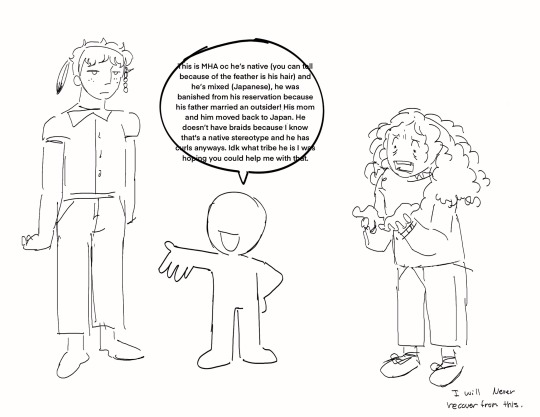
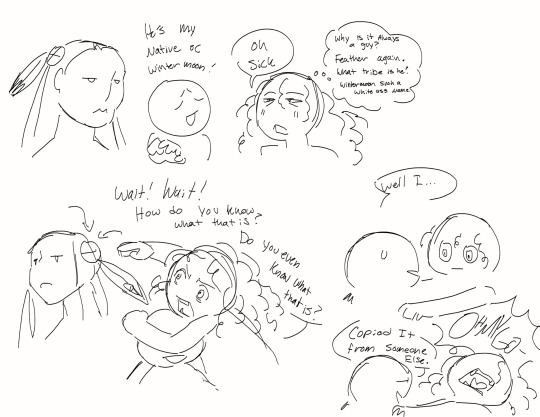
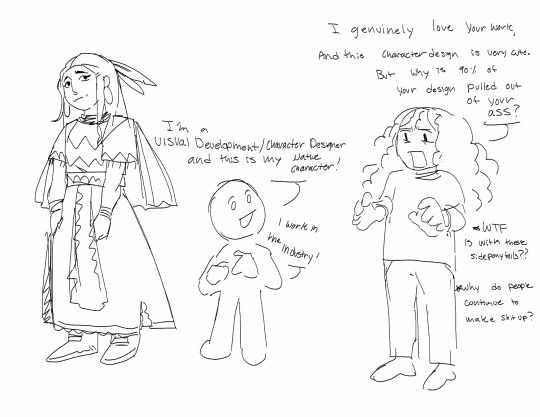
I genuinely feel like I’m going insane sometimes
#native artist#character design#digital art#indigenous artist#visual development#character art#oringinal character
58K notes
·
View notes
Text
#tiktok#andrew_the_arborist#urban gardening#urban landscape#ecofriendly#native wildflowers#eco friendly#eco lawn#native plants#garden#gardening
39K notes
·
View notes
Text
a little more information regarding the maui wildfires:
medical workers on the ground are describing finding hundreds of bodies. the current death toll in the media is, unfortunately, only a fraction of the reality
hospital workers are describing injuries and trauma as if survivors had come out of a warzone
thousands are still missing
an apartment complex for the elderly was lost. not everyone could get out. people were saying goodbye to loved ones over the phone
people who did get out of lahaina were leaving with ashes covering their faces and nothing but the clothes on their backs. people are losing everything.
hotels are still operating. hotels are still operating. they are not the ones offering shelters or housing or food. even bowling alleys are offering shelter, but hotels have the audacity to build on burial sites but not open their doors to local families who have lost everything.
donate to maui united way, the maui food bank, mutual aid, and maui humane society
#maui fires#just got off a very emotional and intense zoom call with coworkers#this is what it means to be native#the government and tourism industry spits in your burnt face
38K notes
·
View notes
Text

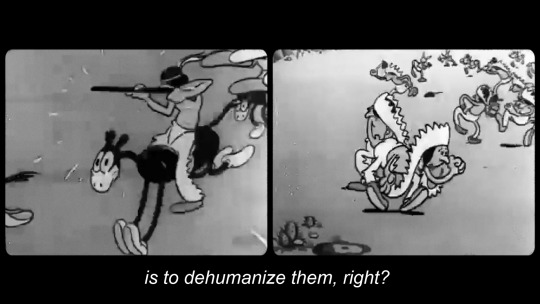
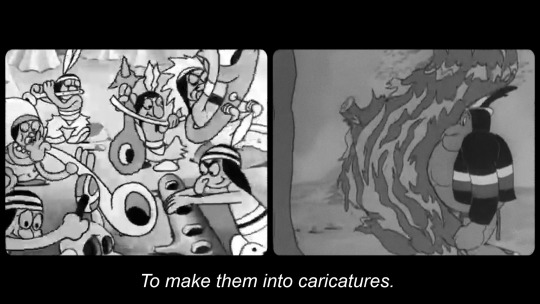
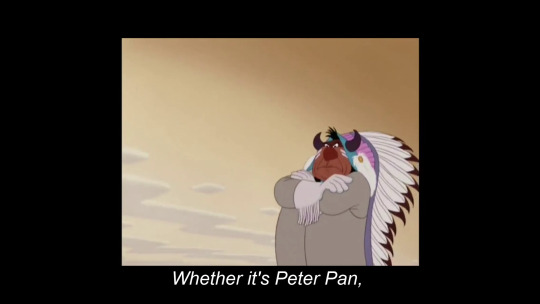


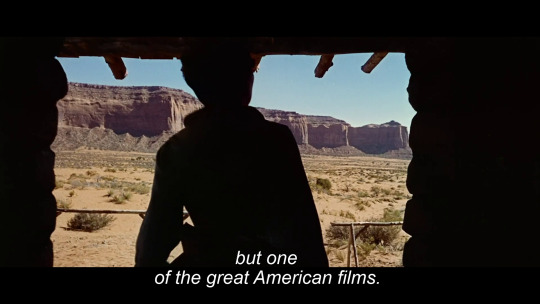
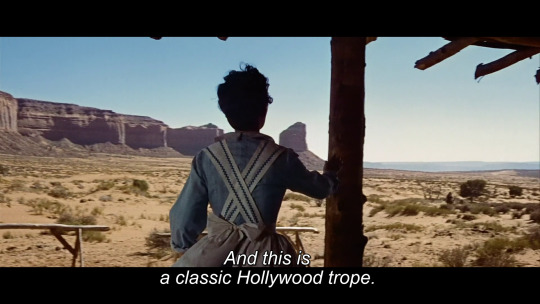

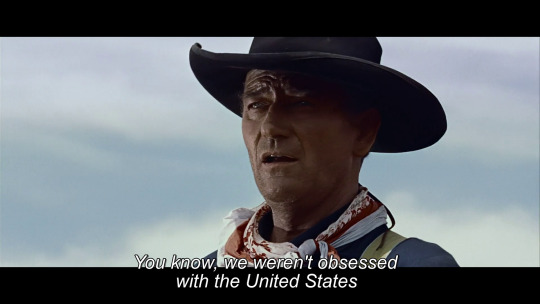
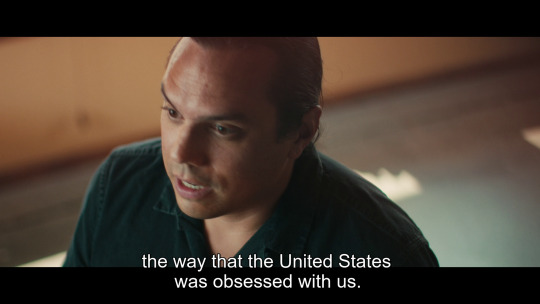
Lakota Nation vs. United States (Jesse Short Bull & Laura Tomaselli, 2022)
#lakota#indigenous#indigenous people#jesse short bull#laura tomaselli#female filmmakers#female directors#female directed films#women in film#native american#lakota nations vs. united states#documentary
37K notes
·
View notes
Text
to any americans who feel "paralyzed" and "dont know what to do" to help with gaza:
reading a fucking book. i beg of you.
in a time of knowledge suppression is it your duty to arm yourself with knowledge.
read about americas occupations in the middle east.
read about 9/11 from outside of america and see how they inflicted senseless harm and violence to countless amounts of people and have been suppressing your rights for the past 2 fucking decades.
read about any of the countless wars from the past 30 years. especially from a civilian's. and the victims and survivors' perspective. listen to the horror stories and do not plug your fucking ears as to what your country is doing.
and read about fucking gaza and palestine and keep up with what is happening no matter how "sad" or "uncountable" you might get.
dont look away from this.
you dont have the right to be comfortable during countless active genocides.
if you're knowledgeable, you're powerful, and our current state doesnt fucking want that.
you have the power to change things if you open your eyes and scream to the world.
wake the fuck up.
Edit: please check the reblogs there are readings and ways to help
#og#truly if youre not about it your against it and i dont fuck with you because you're complacent#wake the fuck up#we're all responsible and dont you dare say you're not#americans need to stop living in the world with their eyes closed and their ears covered#look at what your fucking 'glorious country' is doing to people#everyone should be against america no fucking exceptions because america is violent and evil and needs to be stopped#then read about what america has done to the natives of their land#radicalize yourself#decolonize your mind#free palestine#land back#palestine will be free#theres too many fucking movements of just the past couple years all happening at once to act like the world is fucking fine#we are in a human rights CRISIS#WAKE THE FUCK UP PLEASE
25K notes
·
View notes
Text
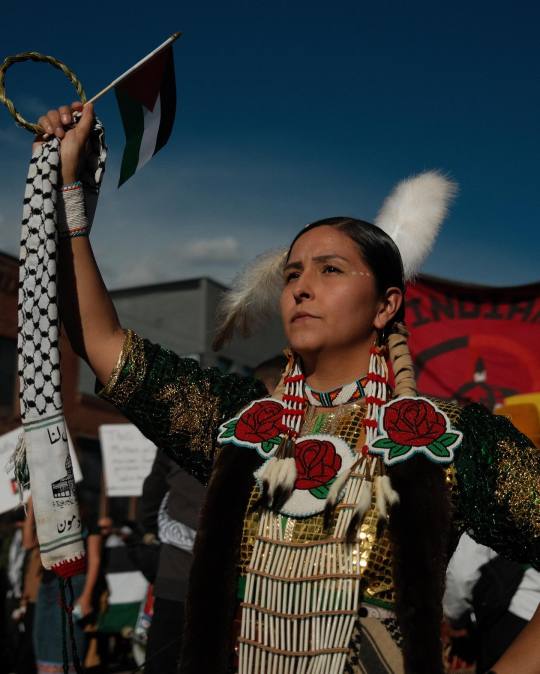
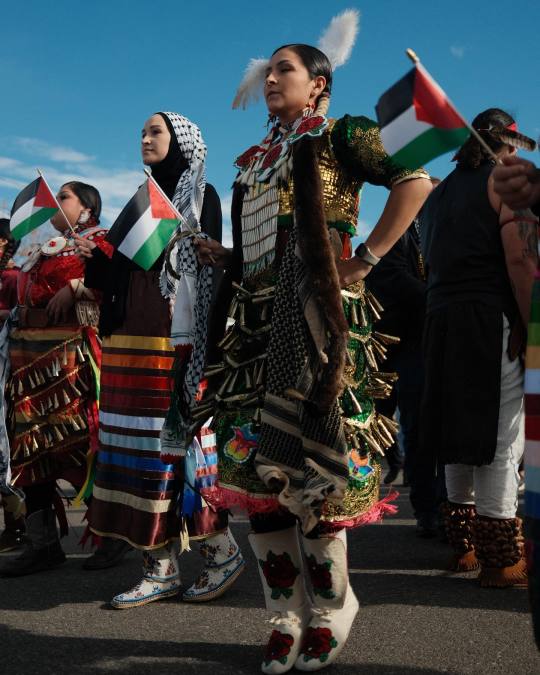
Native Americans march in solidarity with Palestine
Denver, Colorado USA
© Malek Asfeer
#Photography#People#Native American#Indigenous#USA#Palestine#Palestinian#Arab#America#American#Dener#Colorado#Folk dress
19K notes
·
View notes
Text
I know I'm a broken record at this point about how functionally useless editing software has become since AI integration (read: corrections are now being suggested based on user input, not actual grammar rules), but there's nothing quite like a piece of writing software flagging something you've written as an error, and then when you click on it, it can't tell you what the error is.
Just that it thinks something is wrong.
It's like the writing equivalent of the "you better watch out!" meme.
Watch our for what? Nobody knows, but you better watch out!
#this time it's Word's native editor flagging Vlad's name as incorrect#not that it's spelled wrong#just that it's 'incorrect'#how is it incorrect?#it cannot tell me#the vibes are apparently just off#the vibes are wrong#but that's not stopping Word from yelling about it
17K notes
·
View notes
Text
Love is in the air 🖤🗡💀
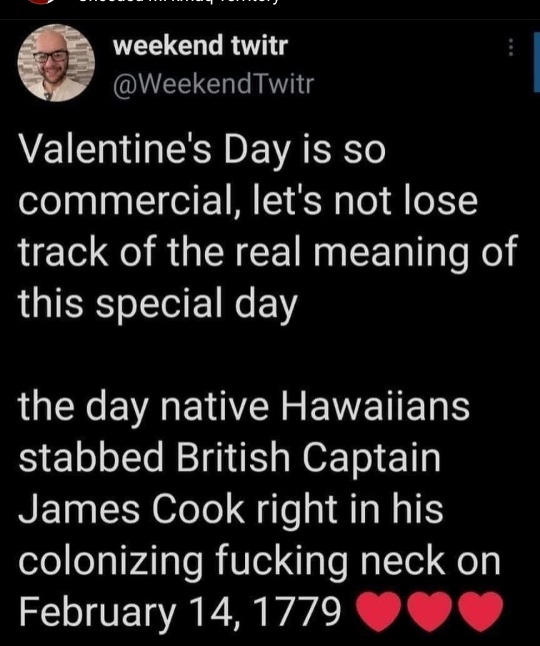
65K notes
·
View notes
Text
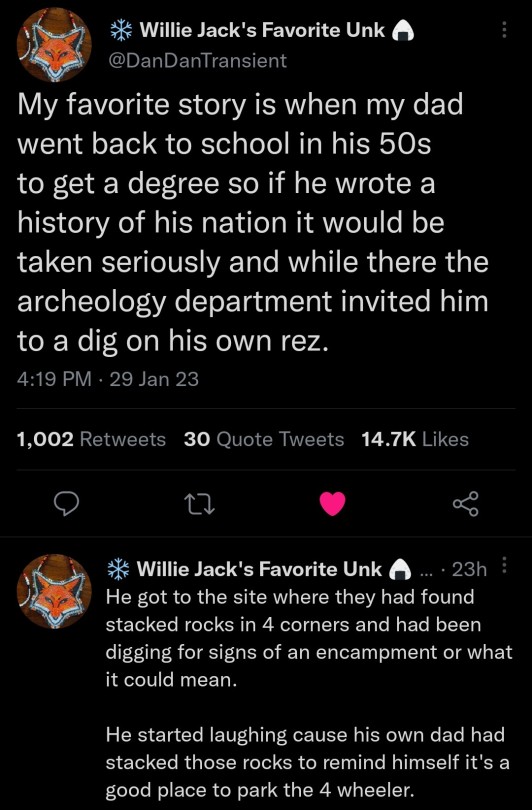
75K notes
·
View notes